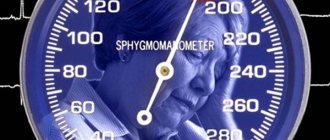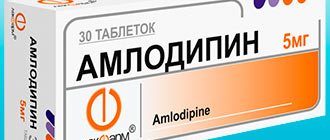In nature, magnesium is found in sea salt. It is partly thanks to magnesium salt that swimming in sea water has such a beneficial effect on the body, improves health, and gives a surge of energy. Magnesium salt of sulfuric acid is also widely used in industry, for the production of high-quality, fire-resistant paper, and is added to cement for the construction of durable road and airfield surfaces. Magnesium sulfate is no less important in medicine. Why magnesium is used in injections - instructions later in the article.
Magnesium sulfate as a laxative
For 1 glass of boiled water you need to take 15-30 g of powder, stir everything and drink. To enhance the laxative effect, you need to consume as much warm liquid as possible. In this case, you will be able to notice the result within 30-40 minutes.
In no case should you take magnesium sulfate for several days in a row, otherwise you can damage the gastric mucosa, which can lead to serious consequences. For acute constipation, the product is used once. To empty the bowel, it is sometimes used together with anthelmintic drugs. For chronic constipation, enemas are done using a solution. To do this, you need to take 25 g of powder and dilute it in half a glass of water.
Application of magnesia
The introduction of magnesium must be very careful
Taking into account all of the above, the instructions for use provide for magnesium injections in the following cases:
- Threat of premature birth. Magnesia stops contractions, that is, spastic contractions of the uterine muscles that expel the fetus. Pregnant women are sometimes prescribed magnesia in the form of a dropper. Indications for the drug are also convulsions during complicated pregnancy, so-called gestosis. In this condition, increased blood pressure and swelling are observed. Preeclampsia is dangerous; it is one of the leading causes of female mortality during childbirth. The most acute form of gestosis is eclampsia, a condition in which the pressure can reach a critically high point, threatening the life of the mother and child.
- Deficiency of magnesium in the body, and especially of positively charged Mg ions. Acute magnesium deficiency leads to tetany;
- Polymorphic ventricular tachycardia, known as “feasting”;
- High blood pressure (hypertension), including those aggravated by a hypertensive crisis with obvious signs of cerebral edema;
- Brain concussion;
- Encephalopathy is a decrease in brain function due to degenerative changes in brain tissue.
- Intoxication with salts of heavy metals (mercury, lead);
- First aid for poisoning with barium chloride, arsenic;
- For severe attacks of bronchial asthma, intravenously and inhaled, in combination with OI2 agonists.
Magnesia has some narcotic effects and can be used to enhance the effects of narcotics and analgesics.
In addition to internal administration, magnesium solution is used in physiotherapy for electrophoresis, which has a calming and vasodilating effect; as medicinal baths, compresses, lotions for wounds. External use of magnesium promotes blood flow in the tissues of the skin, relieves pain and has a resorption effect.
Contraindications
You should avoid taking magnesium sulfate if:
- bleeding in the rectum;
- dehydration of the body;
- intestinal obstruction;
- inflammation of appendicitis.
Should be taken under medical supervision if:
- inflammation of the gastrointestinal tract;
- respiratory problems;
- renal failure.
Magnesia intramuscularly is the No. 1 remedy for a sudden increase in blood pressure. Despite the painfulness of the procedure, it continues to be the most sought-after procedure in an emergency physician's bag. But is it necessary to indulge in self-medication?
Magnesia will remove even poison
Magnesia is a solution of magnesium sulfate. Magnesium relaxes muscles (including the heart), dilates blood vessels, relieves nervous tension (an excellent anti-stress!), as a result of which blood pressure normalizes, arrhythmia goes away, and breathing becomes smoother.
Magnesia is able to remove poison from the body, as it stimulates intestinal motility, accelerates kidney function and the excretion of bile (through dilated bile ducts).
The effect of intramuscular administration of the drug occurs in the first 30 minutes, accelerates by the 1st hour and lasts for 3-4 hours.
Don't inject yourself!
Magnesium sulfate is sold in pharmacies without a prescription. The ampoule contains a 25% solution for intramuscular or intravenous administration. In the first case, the medicine does not require dilution, in the second, it is diluted with saline solution (which is also sold without a prescription).
If you are going to quickly lower your blood pressure, give an intravenous injection; if you need a slightly delayed effect (within an hour), give it intramuscularly.
Do not forget: an intramuscular injection of magnesium is very painful, for this reason it is better to do it lying down and certainly not to yourself.
How to reduce pain from magnesium injections
To reduce pain, it is better to take a longer needle (4 cm), heat the ampoule to body temperature (hold it in your hands), dilute the drug in an anesthetic (for example, lidocaine), slowly inject the medicine into the muscle over 1-2 minutes. And do not get out of bed for at least 10-15 minutes.
Ampoules and syringes. Photo from mktgcdn.com
Why is the administration of magnesia called a “hot injection”
An injection of magnesium causes a strong rush of blood into dilated vessels. The face turns red, there is heat in the stomach (the feeling of fullness even makes you feel a little nauseous), heat in the chest (it becomes difficult to breathe) and dizziness. For beginners, such symptoms cause anxiety and panic.
If the pressure drops sharply, excess blood in the dilated vessels of the brain will cause a headache, the heart muscle will slow down (the pulse will become slower), and loss of strength and drowsiness will appear.
When administered intramuscularly, the pain radiates to the leg, making walking difficult. Fortunately, this unpleasant symptom will pass (within a few hours), and your fears about unsuccessful manipulation or an unexpected stroke will not be justified.
Magnesia has side effects and contraindications
If magnesium is mistakenly injected not into the upper outer part of the gluteal muscle, but into the adipose tissue, then inflammation may occur at the injection site.
See also: Is calcium a friend or foe to the heart?
Sometimes, after administering magnesium, instead of the expected relaxation, agitation and anxiety are observed. It can be difficult to guess the cause, especially if the list of medications taken by the heart patient is long.
Typically, in case of an overdose of magnesium sulfate, calcium gluconate is used as an antidote. But if the heart patient takes dietary supplements with calcium (hypertensive patients like to prescribe them in the autumn-winter period, supposedly to support the heart muscle), then the content of this microelement in the blood may exceed the permissible values.
An overdose of magnesium can cause heart failure, respiratory depression and even death.
The first symptoms of a dangerous condition are confused speech, severe weakness, severe thirst, vomiting, lack of air, loose stools.
How to distinguish a side effect of magnesium from an overdose? According to the level and rate of pressure drop.
Thirst.
Photo from the website life4health.ru With a side effect, the pressure remains elevated or drops to its normal level, and within an hour the unpleasant symptoms disappear. In case of an overdose, the pressure numbers are lower than your usual values, and the symptoms last longer.
Contraindications for the use of magnesium:
- kidney problems (sudden urinary retention),
- heart blocks (atrioventricular),
- initially rare pulse (less than 60 beats/min),
- severe respiratory failure,
- exacerbation of inflammatory diseases of the gastrointestinal tract (gastritis, cholecystitis)
- and, of course, individual intolerance (well, this drug does not suit you!).
Magnesia is not a product for daily use
If you are a supporter of magnesium injections, take note:
- There is a difference between emergency blood pressure lowering and permanent treatment of arterial hypertension. And she's great.
Do you use magnesium often? This means that you cannot cope with the problem of pressure, including with the help of pills. Therefore, rush to your doctor to get sound lifestyle and treatment advice (and to understand why the pills you're taking aren't working).
- The effect of magnesium lasts 4 hours. Next your daily pills should be included.
Immediately after the injection, take drugs with regular action (for 5-6 hours) or extended action (up to 12 or 24 hours). Do not chew, but swallow with water. This way you prevent a repeat surge in pressure and associated complications (heart failure, cerebral hemorrhage).
- The lack of effect from drugs with a short duration of action (captopril, metoprolol, moxonidine) is a reason to give a magnesium injection.
There is no need for an injection if the tablets help for several hours.
...There is no panacea for all diseases. And magnesia, beloved by many, is proof of this. Next time you find yourself with high blood pressure, think about it! Maybe it's time to go to the doctor and at least change your pills.
See also: Hypertensive, find your pill How to combine sex and blood pressure pills. Instructions for men 130/80. A boundary on which it is difficult to balance What goals to set for a hypertensive patient Appeal to the fat man: hey, guy, what is life like for you? Weather forecast - health forecast Nasal drops. Beware, hypertensive patients What worries hypertensive patients on a hot afternoon and rainy morning Hypertensive patients, take care of your eyes in the heat! What does snoring indicate?
Main photo of the article from the site torange.biz
How to take Magnesium Sulfate for weight loss
Before dieting, it is necessary to cleanse the intestines. Magnesium sulfate in this case is intended for one-time use. This method should not be used frequently, since the active substance irritates the gastric mucosa and can ultimately cause dysbacteriosis.
Those who want to lose weight need to add 200 g of powder to the bath. This bath should be taken for 20 minutes before bedtime. The course contains no more than 15 such procedures. It should be done no more than twice a week. The effect is achieved as follows: unnecessary fluid leaves the body, swelling disappears, and metabolic processes improve.
Description of magnesia
Magnesia: release form - ampoules with solution
Magnesia is a magnesium salt of sulfuric acid - magnesium sulfate. Latin name Magnesii sulfas. The powder is colorless, prismatic crystals that easily erode in air. This salt is highly soluble in water and completely insoluble in alcohol.
It is also called bitter for its bitter-salty taste. It is contained in sea salt and determines the bitter taste of sea water. Magnesia is available in the following dosage forms:
- Powder. In this form it is packaged in paper bags or plastic jars of 5, 10, 25 g.
- 25% solution, in ampoules. Available for injection.
The last dosage form, in ampoules, will be discussed in this article. Magnesia injections are performed intravenously and intramuscularly. When administered intravenously, the drug begins to act within a few minutes, and the effect lasts for an hour; when administered intramuscularly, the magnesium solution begins its effect after an hour and the effect lasts for 3-4 hours.
It is not recommended to inject magnesium subcutaneously, since the effectiveness of such injections is low, but the pain can be simply unbearable. The patient experiences a severe painful burning sensation even if the drug accidentally gets under the skin.
Magnesia and calcium - two things do not go together
An overdose of magnesium in humans paralyzes breathing. The pressure drops sharply, and if urgent measures are not taken, the patient may die. It is calcium ions that can revive a patient in this state before the heart stops. Therefore, calcium gluconate or calcium chloride is injected into the patient’s blood as an antidote. Calcium ions displace magnesium ions and thereby change the chemical composition and physical properties of the sulfate salt.
Magnesia, in turn, is a calcium antagonist. Its mechanism of action is that magnesium sulfate prevents the penetration of calcium ions from the cell into the heart muscle tissue through slow L-type calcium channels. Due to the decrease in positive calcium ions in cardiomyocytes and smooth muscle cells of blood vessels, a vasodilator effect occurs.
But, despite this interaction, situations arise when the patient is simultaneously injected with magnesia and preparations containing calcium. It is recommended to give such injections into different veins.
Features of the action
The effect of using the drug Magnesia for a hangover in ampoules manifests itself most quickly. In this case, it is administered by injection. This allows you to quickly normalize your heartbeat, relieve headaches and remove swelling. The sedative effect of magnesium sulfate blocks the development of increased anxiety, irritability, sudden changes in mood, feelings of guilt, and depression.
An injection of Magnesia for a hangover allows you to quickly restore the magnesium content in the body and normalize the functioning of the cardiovascular system. The choleretic effect of the drug allows you to limit the load on the liver and gallbladder.
Using Magnesia for a hangover
Magnesii sulfas is a drug successfully used in medicine to relieve hangover symptoms. The drug is mainly used in cases of severe alcohol withdrawal as a result of consuming significant doses of alcoholic beverages. Its action is based on replenishing the body with a large amount of magnesium. In addition to alcohol intoxication, other factors lead to a lack of this element in the body:
- long-term use of certain medications;
- too poor diet;
- regular stressful situations;
- strong physical activity.
How to take magnesium after a hangover to restore the body? To do this, it is recommended to use the product orally in powder form. If you are interested in magnesium for hangover dosage , this should be done two to three times every hour. Magnesium sulfate begins to act 30 minutes after the first use, providing the following effects:
- cleanses the body of alcohol breakdown products;
- relieves headaches;
- normalizes blood pressure;
- relieves swelling;
- has a calming effect.
However, it is not recommended to treat a hangover with magnesium B6 on your own without first consulting a specialist. The essence of the drug’s action is based on the removal of breakdown products of alcoholic beverages.
Ethanol, after entering the body, begins to break down under the action of enzymes produced by the liver. The result of this process is often a large number of poisonous and very toxic compounds. They gradually poison the body, disrupting the functioning of all its systems. The diuretic and laxative effect of Magnesia significantly accelerates the process of their removal from the body, thereby contributing to a more rapid improvement in the human condition.
Is it possible to combine Magnesia and alcohol?
If you carefully read the instructions for the product, you can find a paragraph that states that magnesium sulfate and alcoholic beverages are completely incompatible. This statement is especially relevant for significant doses of alcohol. If you violate this requirement, the effect of using the drug will be nullified.
Abuse of alcoholic beverages will put excessive strain on the kidneys. This is due to the fact that the overwhelming amount of magnesium sulfate is excreted through the urinary system. It should be taken into account that ethyl alcohol initially stimulates the central nervous system, and then also quickly causes its inhibition. Magnesia also has sedative properties.
That is why the combination of alcohol consumption and intravenous administration of magnesium B6 is prohibited, so as not to cause excessive inhibition of the central nervous system. But there are no restrictions on the use of the drug in the form of lotions and compresses.
Small doses of alcoholic beverages will not cause any complications even when consumed simultaneously with Magnesia. However, with excessive libation, negative reactions may occur such as the lack of the expected effect from the use of the drug, the deposition of kidney stones, depression of the nervous system, accompanied by drowsiness, nausea, lethargy, and sometimes coma.










